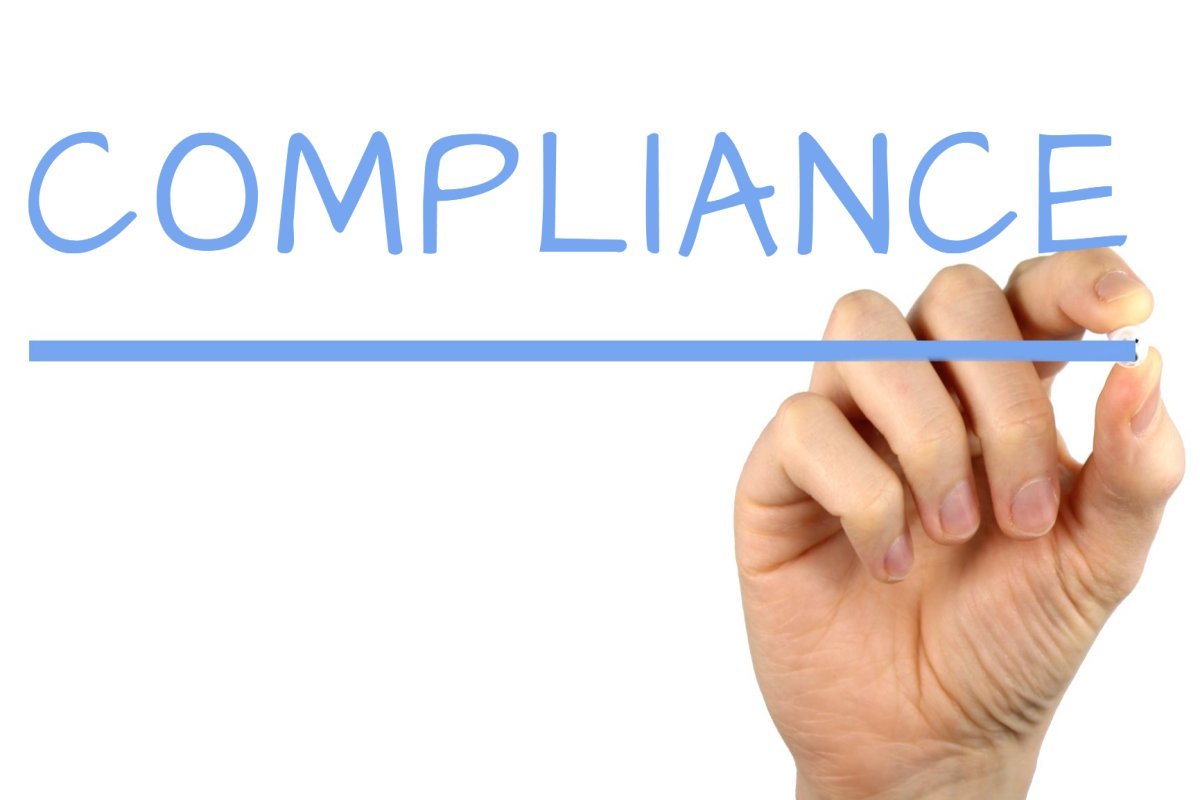In the ever-evolving landscape of remote work, ensuring the protection of sensitive information has become paramount. As teams disperse across different locations, the need for a robust confidentiality agreement has never been more crucial. Whether you’re a business owner, a freelancer, or an employee, understanding how to create a remote work confidentiality agreement is an essential skill. This article will guide you through the process, providing valuable insights and practical tips to safeguard your company’s secrets and maintain trust in the virtual realm. So, let’s dive into the world of remote work confidentiality and unlock the key to secure collaboration in the digital age.
Table of Contents
- Understanding the Importance of a Remote Work Confidentiality Agreement
- Key Elements to Include in a Remote Work Confidentiality Agreement
- Tips for Drafting an Effective Remote Work Confidentiality Agreement
- Ensuring Compliance and Enforcing a Remote Work Confidentiality Agreement
- Best Practices for Reviewing and Updating a Remote Work Confidentiality Agreement
- Q&A
- To Conclude

Understanding the Importance of a Remote Work Confidentiality Agreement
When it comes to remote work, maintaining confidentiality is of utmost importance. In today’s digital age, where sensitive information can be easily shared and accessed, it is crucial for businesses to protect their intellectual property and maintain the trust of their clients. This is where a remote work confidentiality agreement plays a vital role.
A remote work confidentiality agreement is a legally binding document that outlines the terms and conditions regarding the protection of confidential information. It ensures that employees or contractors working remotely understand their responsibilities in safeguarding sensitive data and prevents unauthorized disclosure or misuse.
Here are a few reasons why a remote work confidentiality agreement is essential:
- Protecting Intellectual Property: By signing a confidentiality agreement, remote workers acknowledge the importance of safeguarding trade secrets, proprietary information, and other valuable assets of the company. This helps prevent the unauthorized use or disclosure of such intellectual property.
- Maintaining Client Trust: Clients often share confidential information with businesses, and it is crucial to maintain their trust. A confidentiality agreement ensures that remote workers understand the sensitivity of client data and are committed to keeping it confidential.
- Preventing Data Breaches: Remote work introduces additional security risks, such as unsecured networks or devices. A confidentiality agreement sets clear guidelines for remote workers to follow, reducing the chances of data breaches and ensuring the protection of sensitive information.
In conclusion, a remote work confidentiality agreement is a powerful tool that helps businesses protect their intellectual property, maintain client trust, and prevent data breaches. By establishing clear guidelines and expectations, this agreement ensures that remote workers understand the importance of confidentiality and take the necessary steps to uphold it.

Key Elements to Include in a Remote Work Confidentiality Agreement
When it comes to remote work, ensuring the protection of sensitive information is of utmost importance. A well-drafted confidentiality agreement can help safeguard your company’s trade secrets and confidential data. Here are some key elements that should be included in such an agreement:
- Definition of Confidential Information: Clearly define what constitutes confidential information, including proprietary knowledge, customer data, financial records, and any other sensitive information specific to your business.
- Obligations of the Parties: Outline the responsibilities of both the employer and the remote worker in maintaining confidentiality. This may include restrictions on sharing information, implementing security measures, and promptly reporting any breaches or suspected breaches.
- Non-Disclosure and Non-Use: Specify that the remote worker is prohibited from disclosing or using confidential information for any purpose other than their assigned tasks. Emphasize the importance of keeping information strictly confidential, even after the termination of the remote work arrangement.
- Remedies for Breach: Clearly state the consequences of breaching the confidentiality agreement, such as legal action, monetary damages, or termination of the remote work contract.
- Dispute Resolution: Include a clause that outlines the process for resolving any disputes arising from the agreement, such as mediation or arbitration.
Remember, a well-crafted confidentiality agreement not only protects your company’s sensitive information but also establishes trust and professionalism between the employer and the remote worker. It is essential to consult with legal professionals to ensure that your agreement complies with applicable laws and covers all necessary aspects of confidentiality.

Tips for Drafting an Effective Remote Work Confidentiality Agreement
When it comes to remote work, ensuring the protection of sensitive information is crucial. A well-drafted confidentiality agreement can provide the necessary legal framework to safeguard your company’s confidential data. Here are some tips to help you create an effective remote work confidentiality agreement:
- Clearly define confidential information: Start by clearly outlining what constitutes confidential information. This can include trade secrets, client lists, financial data, proprietary technology, and any other sensitive information specific to your business.
- Specify the purpose of the agreement: Clearly state the purpose of the confidentiality agreement, emphasizing the importance of maintaining confidentiality and the consequences of breaching the agreement.
- Include non-disclosure obligations: Clearly outline the obligations of the parties involved, including the employee or contractor’s duty to keep the confidential information confidential and not disclose it to any unauthorized individuals.
- Address remote work specifics: Consider including provisions that address the unique challenges of remote work, such as secure data transmission, encryption requirements, and the use of company-approved communication tools.
- Include remedies for breach: Clearly state the remedies available in case of a breach, such as injunctive relief, monetary damages, or termination of the employment or contractor agreement.
Remember, a well-drafted remote work confidentiality agreement can provide peace of mind and protect your company’s valuable information. It is always advisable to consult with legal professionals to ensure your agreement complies with applicable laws and covers all necessary aspects.

Ensuring Compliance and Enforcing a Remote Work Confidentiality Agreement
When it comes to remote work, ensuring compliance and enforcing a confidentiality agreement is of utmost importance. To maintain the confidentiality of sensitive information and protect the interests of all parties involved, here are some key steps to follow:
- Educate and Communicate: Clearly communicate the terms and conditions of the confidentiality agreement to all remote employees. Provide comprehensive training sessions or materials to ensure they understand the importance of confidentiality and the consequences of non-compliance.
- Secure Digital Infrastructure: Implement robust security measures to safeguard confidential data. This includes using encrypted communication channels, secure file sharing platforms, and multi-factor authentication to prevent unauthorized access.
- Regular Audits and Monitoring: Conduct periodic audits to assess compliance with the confidentiality agreement. Monitor remote employees’ activities to detect any potential breaches or suspicious behavior. This helps maintain accountability and ensures that confidential information remains protected.
- Enforce Consequences: Clearly outline the consequences of breaching the confidentiality agreement and enforce them consistently. This may include disciplinary actions, termination of employment, or legal consequences, depending on the severity of the breach.
By following these steps, organizations can establish a strong framework for compliance and enforce their remote work confidentiality agreement effectively. This not only protects sensitive information but also fosters trust and confidence among remote employees, ensuring a secure and productive work environment.
Best Practices for Reviewing and Updating a Remote Work Confidentiality Agreement
When it comes to remote work, ensuring the protection of sensitive information is crucial. A well-crafted confidentiality agreement serves as a vital tool in safeguarding your company’s proprietary data. To ensure its effectiveness, it is essential to regularly review and update this agreement. Here are some best practices to consider:
- Regular Assessments: Conduct periodic assessments to identify any potential gaps or weaknesses in your existing confidentiality agreement. This will help you stay proactive in addressing emerging risks and adapting to the evolving remote work landscape.
- Clear and Concise Language: Use clear and concise language in your agreement to avoid any ambiguity. Ensure that all parties involved fully understand their obligations and responsibilities regarding the protection of confidential information.
- Include Specific Definitions: Clearly define what constitutes confidential information within the agreement. This can include trade secrets, client data, financial information, or any other proprietary data unique to your organization.
- Outline Permitted Use and Disclosure: Clearly outline the permitted use and disclosure of confidential information. Specify who can access the information, under what circumstances, and the limitations on its use to prevent any unauthorized sharing or misuse.
- Address Remote Work Considerations: Take into account the unique challenges and risks associated with remote work. Consider including provisions related to secure communication channels, data encryption, and the return or destruction of confidential information upon termination of employment.
By following these best practices, you can ensure that your remote work confidentiality agreement remains up-to-date, comprehensive, and effective in protecting your company’s valuable information.
Q&A
What is a remote work confidentiality agreement?
A remote work confidentiality agreement is a legal document that outlines the terms and conditions for maintaining the confidentiality of sensitive information while working remotely. It helps protect the company’s intellectual property and trade secrets.
Why is a remote work confidentiality agreement important?
A remote work confidentiality agreement is important because it ensures that employees understand their responsibilities in safeguarding confidential information. It helps maintain trust between the company and its remote workers and minimizes the risk of data breaches or unauthorized disclosures.
What should be included in a remote work confidentiality agreement?
A remote work confidentiality agreement should include a clear definition of what constitutes confidential information, the obligations of the employee to maintain confidentiality, the consequences of breaching the agreement, and any exceptions or limitations to the confidentiality obligations.
How can I create a remote work confidentiality agreement?
To create a remote work confidentiality agreement, you can start by consulting with a legal professional to ensure compliance with local laws. Customize the agreement to fit your company’s specific needs and clearly communicate the expectations and obligations of both parties involved.
Can a remote work confidentiality agreement be enforced?
Yes, a remote work confidentiality agreement can be enforced if it is properly drafted and signed by both parties. However, enforcement may vary depending on the jurisdiction and the specific circumstances of the breach. It is always advisable to consult with legal counsel to understand the enforceability of the agreement in your jurisdiction.
What happens if an employee violates a remote work confidentiality agreement?
If an employee violates a remote work confidentiality agreement, the consequences can range from warnings and retraining to termination of employment. In some cases, legal action may be taken to seek damages or injunctions to prevent further disclosure of confidential information.
How often should a remote work confidentiality agreement be reviewed?
A remote work confidentiality agreement should be reviewed periodically, especially when there are significant changes in the company’s operations or the nature of the work being performed remotely. It is important to ensure that the agreement remains up-to-date and relevant to the current circumstances.
Can a remote work confidentiality agreement be modified?
Yes, a remote work confidentiality agreement can be modified if both parties agree to the changes. Any modifications should be made in writing and signed by all parties involved. It is important to ensure that the modified agreement is legally valid and enforceable.
To Conclude
In a world where remote work is becoming increasingly prevalent, ensuring the protection of sensitive information has become more crucial than ever. By following the steps outlined in this article, you are now equipped with the knowledge to create a remote work confidentiality agreement that will safeguard your company’s valuable assets.
Remember, a well-crafted confidentiality agreement serves as a shield, shielding your organization from potential breaches and unauthorized disclosures. It establishes a culture of trust and accountability among remote workers, fostering an environment where confidential information is treated with the utmost care.
As you embark on this journey of creating a remote work confidentiality agreement, let your creativity flow. Tailor the agreement to suit your organization’s unique needs, incorporating innovative clauses that address the specific challenges of remote work. Think outside the box, and consider including provisions that address data security, remote access protocols, and the use of personal devices.
While the tone of this article has been neutral, it is important to emphasize the significance of confidentiality in remote work. Confidentiality is the cornerstone of any successful business, and by implementing a robust agreement, you are taking a proactive step towards safeguarding your company’s intellectual property, trade secrets, and client information.
So, go forth and create a remote work confidentiality agreement that reflects your organization’s commitment to protecting confidential information. With this powerful tool in hand, you can confidently embrace the remote work revolution, knowing that your company’s secrets are safe and secure.
As an affiliate, my content may feature links to products I personally use and recommend. By taking action, like subscribing or making a purchase, you’ll be supporting my work and fueling my taco cravings at the same time. Win-win, right?
Want to read more? Check out our Affiliate Disclosure page.